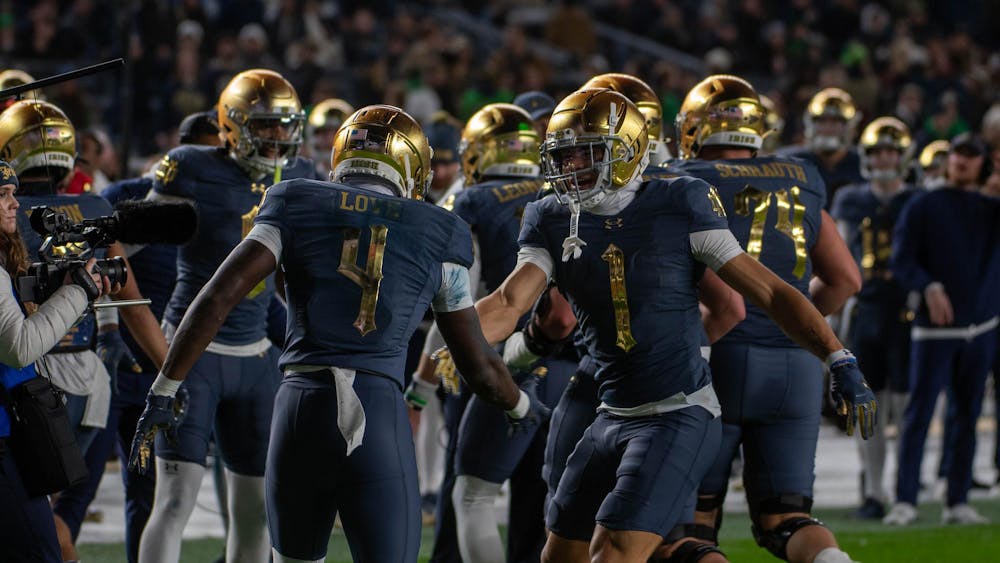Editor's Note: Due to a copy editing error, part of the last sentence was originally left out of this piece. It has since been added. The Observer apologizes for this error.
I’ve attended Indiana schools for just shy of 17 years. This week, Indiana Senate Education Bill 167, and the surrounding debate, made national headlines. I read the bill thoroughly.
Concurrently, I read an op-ed by Tucker Carlson on “the extremely left-wing to the outright totalitarian” curricula taught in “so many” American schools. Carlson informed his readers and me that "some schools have eliminated biology” and are “teaching children that biology isn’t real.” If these statements about the crisis of biology education were true, I would be highly concerned. Especially given the public health crisis our nation has endured throughout the past two years due to the COVID-19 pandemic. However, parents should take heart that in Indiana, as well as the vast majority of states in the U.S., students are still required to take biology in order to earn their diplomas.
Senate Bill 167 isn’t about biology, though. It’s mostly about setting limits on how topics such as race, ethnicity, class, sex and gender can be broached in the classroom. Mostly.
But one element of this bill may hurt students by instituting an access barrier to mental, emotional or psychological care. The bill “provides that before a school corporation or qualified school may provide or administer certain mental, social-emotional, or psychological services to a student, the school must provide the parent of the student or the student, if the student is an adult or an emancipated minor, with a written request for consent to provide or administer certain mental, social-emotional, or psychological services.”
I fully appreciate the intent for greater parental involvement in decisions regarding their children’s health, but we cannot ignore cases where children may be put at higher risk as a consequence. Schools are a major reporter of child abuse. According to Education Week, during the virtual schooling phase of the pandemic — between 2019 and 2020 — reports of child abuse decreased significantly, while “confirmed evidence of abuse” and suspected incidents “considered severe enough to need medical evaluations and intervention” increased by 30% and 7% respectively. If school counselors and teachers must obtain parental consent before administering mental, social-emotional or psychological help to a student living in an abusive household, the results could be disastrous, possibly intensifying the degree of abuse or psychological distress the child faces.
Another element of the bill legally limits the freedoms of schools and educators, as it “Removes schools and certain public libraries from the list of entities eligible for a specified defense to criminal prosecutions alleging:
(1) the dissemination of material harmful to minors; or
(2) a performance harmful to minors.”
The bill simultaneously makes colleges and universities eligible for defenses against the same two criminal prosecutions.
The combination of these actions implies a stronger exertion of control over the information that young children are allowed to consume, while giving greater freedom to colleges and universities against similar charges of disseminating material deemed obscene or harmful to minors (the latter of which lacks bite, since most college students aren’t minors).
The argument for limiting child exposure to specifically explicit, violent or otherwise mature material in the classroom is clear and well-taken. Other material? Not so much. Not in a free society. I can’t help but think of the irony. This bill, which in the words of Republican senator Scott Baldwin is “trying to say that we should not tell kids what to think about politics,” removes any defenses schools can have against the same charge which killed Socrates: corrupting the youth. Socrates, who said famously that the unexamined life was not worth living; Socrates, who exercised freedom of thought and taught his students to do so; Socrates, who paid the ultimate price for it.
What is a Good Education?
“[A]sk in general what great benefit the state derives from the training by which it educates its citizens, and the reply will be perfectly straightforward. The good education they have received will make them good men…” (Plato, Laws, 641b7–10, retrieved from the Stanford Encyclopedia of Philosophy).
In response to those who ask why education become has so political, my answer is that it always has been. The task of those selecting which facts, which curricula, which courses of study our children will be taught, out of all possible courses of study and facts and curricula our children could be taught, is herculean. A world in which every student learns every fact from every perspective is unfathomable. So, the sliver of facts about the world that our children learn in American K-12 schools is curated by adults who have their own share of biases, political values and ideas that affect what gets included and what gets left out.
In a statistical sense, truly unbiased education would either warrant that: a) Students should learn every possible thing, every possible recorded fact (impossible) or, b) that facts about the world be selected at random and taught to our children. Of course, these are not the outcomes lawmakers, school administrators and parents have in mind when they call for “less biased education” or “unbiased facts.” But the reality is, even in some hypothetical scenario where 50% of what is chosen to be taught accords with “conservative” viewpoints, and 50% of what is taught accords with “liberal” viewpoints on contentious social issues, such an education would be strongly biased. Our country’s obsession with left vs. right curriculum wars instills a binary partisan animosity into our children, in effect turning them into young soldiers for the political commitments of their parents, who fear that their teachers will do it first.
Renee Yaseen is a senior economics major with minors in theology and PPE (Philosophy, Politics, and Economics). In her free time, she writes poems, hangs out with loved ones and ponders the view from her undisclosed study spot in [redacted] Hall. Please send all comments, diatribes and warm fuzzies to ryaseen@nd.edu.
‘Why has education become so political?’ And other questions you have about Indiana Senate Bill No. 167
The views expressed in this column are those of the author and not necessarily those of The Observer.









